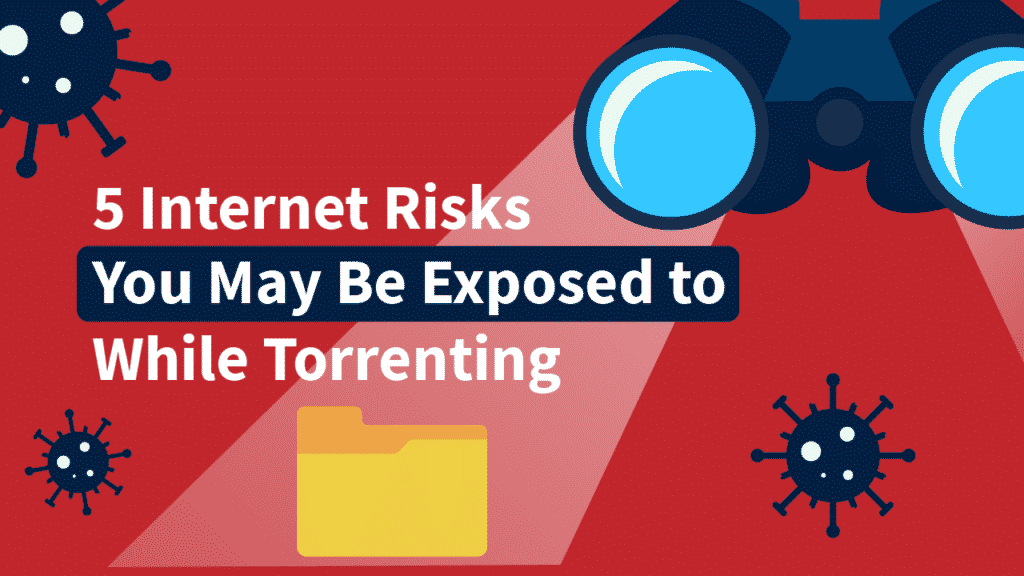5 Internet Risks You May Be Exposed to While Torrenting
Torrents are files that you download from peer-to-peer platforms. They could be games, movies, songs, pictures, and more. These files don’t have a single administrator, and they move from one user to another across a platform.
While torrenting is quick and straightforward, you also run some significant risks when engaging in the activity.
In this article, we’ll look at some of those risks and how they might affect you:
1. Malware Risks
Malware risks are so far one of the most common and most dangerous threats that you can face on torrenting sites. In truth, anyone who downloads a file from a torrenting site does so without knowing what the file contains. If you download a malware-infected file, you run the risk of exposing your computer to different threats.
Some of the most critical malware risks include:
- Ransomware: A ransomware is a form of malware that infiltrates your computer and encrypts all your files. It locks you out and displays a message telling you to pay to a specific account to access your files back. This is one of the most famous malware forms.
- Phishing Scams: With phishing scams, a hacker gets your email or mobile phone number and sends messages that are identical to authentic companies. Under that pretense, they collect your confidential information. The result could be account hacks, SIM swapping operations, and more.
- Viruses: These are malicious computer programs that hackers send to your computer via email. Once opened, they infect your computer and spread to everyone on your contact list. They can send spam messages, hack into your confidential information and contacts, hijack your browser, display pesky ads, etc. The best way to mitigate against all this is to scan the file you download with antivirus software before opening it. Check that the file has any malware content and take care of those before you launch the site.
2. Possible Legal Troubles
Most of the content that you download via torrenting sites are protected under copyright law, and downloading them without consent from the owners is a crime.
A lot of torrent users face legal issues and are now under observation from legal authorities. Internet service providers (ISPs) also have tools that help them monitor a torrent user’s online activities. If these tools detect any trace of downloading illegal content or copyrighted torrent files, you could be liable to face legal actions.
The penalties of this action could be the issuance of warnings and the imposition of fines against you. Your ISP could lose its license too.
However, keep in mind that not all torrents are illegal. You can download some legal torrents on the internet, and if you find those, it’s recommended that you go for them.
Also, note that the laws and penalties that govern piracy vary between states and countries. Most governments use copyright trolls and agents to snoop over networks and find users’ IP addresses. They then send settlement letters to your ISP, who will contact you with two available options — a fine or a court date.
3. Network Vulnerabilities
Once you download a torrent, you could become vulnerable to cyberattacks. Most peer-to-peer file sharing platforms don’t offer direct threats to your system. However, you could still suffer an attack from someone who publishes a malicious file on the platform.
When you download and share a torrent file, the file’s developer becomes active and can take some information about your online activities. If the developer is a hacker, they can use this information to their advantage. This is why most experts recommend that you use anonymous browsing when you go to torrenting platforms. This way, possible hackers won’t be able to get your information.
4. Data Safety Risks
Another significant concern when downloading files from torrenting sites is that unauthorized parties could access your critical information. If you go to the torrenting site with a company computer, then you could be opening up the company’s vital details to a network of hackers.
It might be the case that an employee downloads torrents and stores them in the same file as confidential company information. If the higher authorities notice a torrent file there, they might take action against such an employee.
To be clear, it’s not recommended that you use a company computer to download torrent files; however, if you will, try to keep them in separate files.
5. Financial Losses
When you consider the cost of fixing issues and other possible fallouts from a torrenting download gone wrong, you could be looking at thousands of dollars. You don’t want to spend money unnecessarily to fix issues that you could have averted.
Conclusion
While torrenting is fast and convenient, it can be risky if you go about it the wrong way. To be on the safer side, you need to ensure that the files you download aren’t malicious. Better still, try downloading files from a legal torrenting site.
